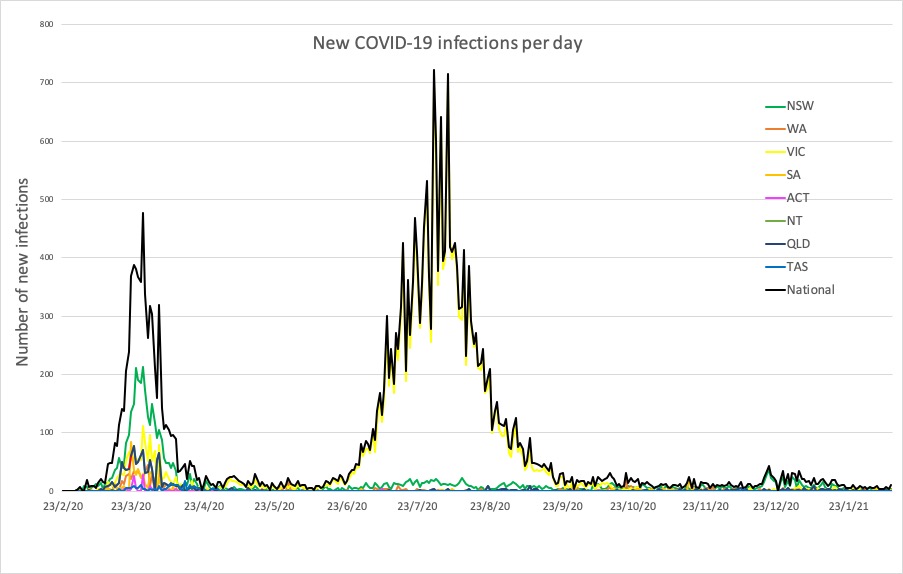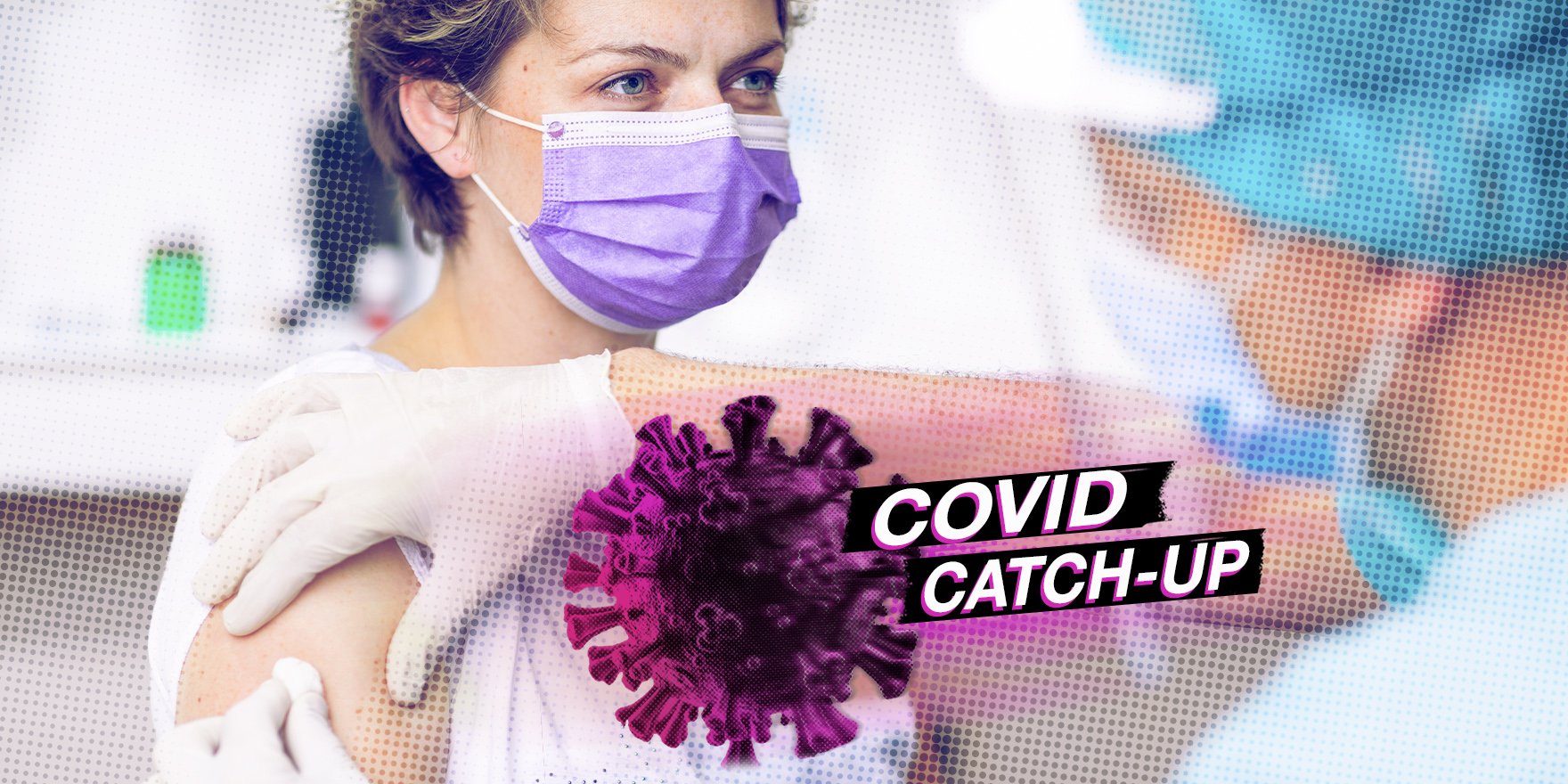And the US CDC advises that vaccinated people no longer need to quarantine after exposure to COVID-19.
Welcome to The Medical Republic’s COVID Catch-Up.
It’s the day’s COVID-19 news in one convenient post. Email bianca@biancanogrady.com with any tips, comments or feedback.
11 February
- WHO recommends AstraZeneca/Oxford vaccine even when the British or South Africa strains are prevalent.
- US CDC advises fully-vaccinated people don’t need to quarantine after SARS-CoV-2 exposure.
- Around 6% of UK residents have SARS-CoV-2 antibodies.
- Latest confirmed COVID-19 infection numbers from around Australia.
The World Health Organization has advised that the AstraZeneca/Oxford vaccine can still be used in countries where the British and South African SARS-CoV-1 variants are present, despite evidence suggesting the vaccine may be less effective against these strains of the virus.
In its interim recommendations on use of the AZD1222 vaccine, WHO said that data on the vaccine supported the conclusion that the ‘known and potential benefits’ of the vaccine outweighed the known and potential risks, even against the emerging viral variants.
The organisation cited data suggesting the vaccine had an efficacy of around 63% against symptomatic COVID-19 for two doses, although efficacy was higher when the doses were given further apart. As such, they supported a dose interval of 4-12 weeks.
Vaccinated individuals in the United States are no longer required to quarantine after exposure to someone with COVID-19, according to new advice from the US Centers for Disease Control.
The latest update on use of mRNA SARS-CoV-2 vaccines advises that people who are fully vaccinated – meaning that at least two weeks but no more than three months have passed since they received the final dose of the vaccine – no longer need to quarantine after exposure to confirmed or suspected COVID-19, provided they are also asymptomatic.
The document also specifies that individuals with a known allergy to polyethylene glycol or polysorbate should not receive the mRNA vaccines, because the first is an ingredient and there is potential for cross-reactivity to the second.
A large-scale serosurvey in the United Kingdom has found 6% of the population has antibodies to SARS-CoV-2, but the prevalence is significantly higher in Black and South Asian people and amongst healthcare workers.
A paper published in Nature Communications reports the results of a national serosurvey of more than 100,000 randomly selected adults across the UK who were tested for antibodies to SARS-CoV-2 with home-based tests sent by post during June-July 2020.
This found 6% of respondents tested positive for SARS-CoV-2 IgG antibodies, which translated to around 3.36 million adults across the entire country.
The prevalence varied by age – the highest being 7.9% among those aged 17-24 – and location, with 13% of London residents testing positive.
There were also significant differences based on ethnicity and profession. The prevalence of positive antibody results was 17.3% in people of Black ethnicity, and nearly 12% in those of South Asian ethnicity, compared to 5% among white people.
Among people working in residential care homes, the prevalence was 16.5%, and among healthcare workers in contact with patients, it was 11.7%.
The authors commented that the findings “reflect a starkly uneven experience of the COVID-19 epidemic across society.”
“In the UK context our finding of a higher prevalence of infection, with no apparent difference in IFRs, may explain the observed excess mortality in minority ethnic groups,” they wrote.
Here are the latest confirmed COVID-19 infection numbers from around Australia to 9pm Wednesday:
National – 28,871 with 909 deaths
ACT – 118 (0)
NSW – 5129 (4)
NT – 102 (0)
QLD – 1316 (1)
SA – 605 (2)
TAS – 234 (0)
VIC – 20,458 (2)
WA – 909 (2)



